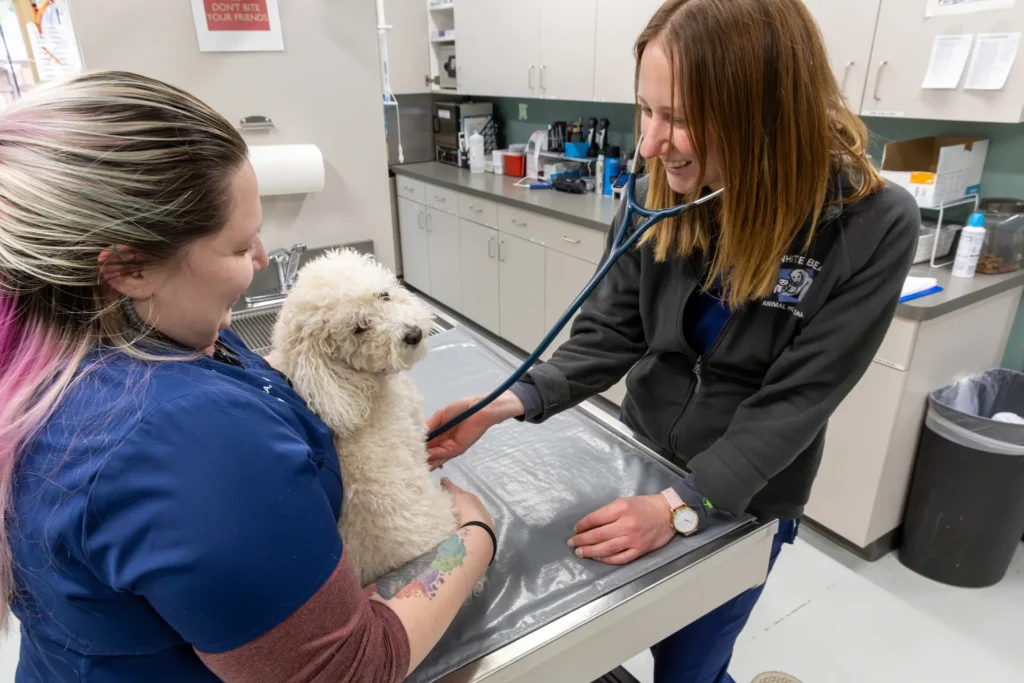Heartworm Testing, Treatment & Prevention
Heartworms are transmitted by mosquitoes and can live in the blood vessels between the heart and lungs, leading to life-threatening disease. Because Minnesota’s mosquito season can be unpredictable, we recommend year-round heartworm prevention to keep your pet safe.
Key Steps in Heartworm Prevention:
- Annual Testing: A quick blood test ensures we catch any infection early.
- Monthly Preventive Medications: Simple oral or topical treatments drastically reduce the risk of heartworm disease.
- Treatment Options: If your pet does test positive, our team can guide you through safe and effective treatment protocols.

Protecting your pet from heartworms not only secures their long-term cardiovascular health but also gives you peace of mind.
What we offer as part of our Heartworm Testing, Treatment & Prevention
Annual Heartworm Tests
Preventive Medication Plans
Heartworm Treatment Guidance
Frequently Asked Questions
How do pets contract heartworms?
Heartworms are spread by mosquitoes that carry the parasite. A single bite from an infected mosquito can transmit the larvae into a pet’s bloodstream.
Why must I test annually if my pet is on preventive medication?
Preventives are highly effective but not infallible. Testing confirms that the medication is working and helps catch any unexpected infection early.
Can cats also get heartworm disease?
Yes. While it’s less common in cats, it can happen. Symptoms are often more subtle and can still be very serious if untreated.
What happens if my pet tests positive for heartworms?
We’ll confirm the diagnosis and develop a treatment plan. Treatment involves special medications and activity restriction to reduce complications.
Are there any side effects to heartworm preventive medications?
Most pets tolerate them very well. Side effects are rare and usually mild, such as occasional digestive upset. We’ll help you choose the best option for your pet.
Other services

Wellness Exams

Vaccinations for Dogs & Cats

